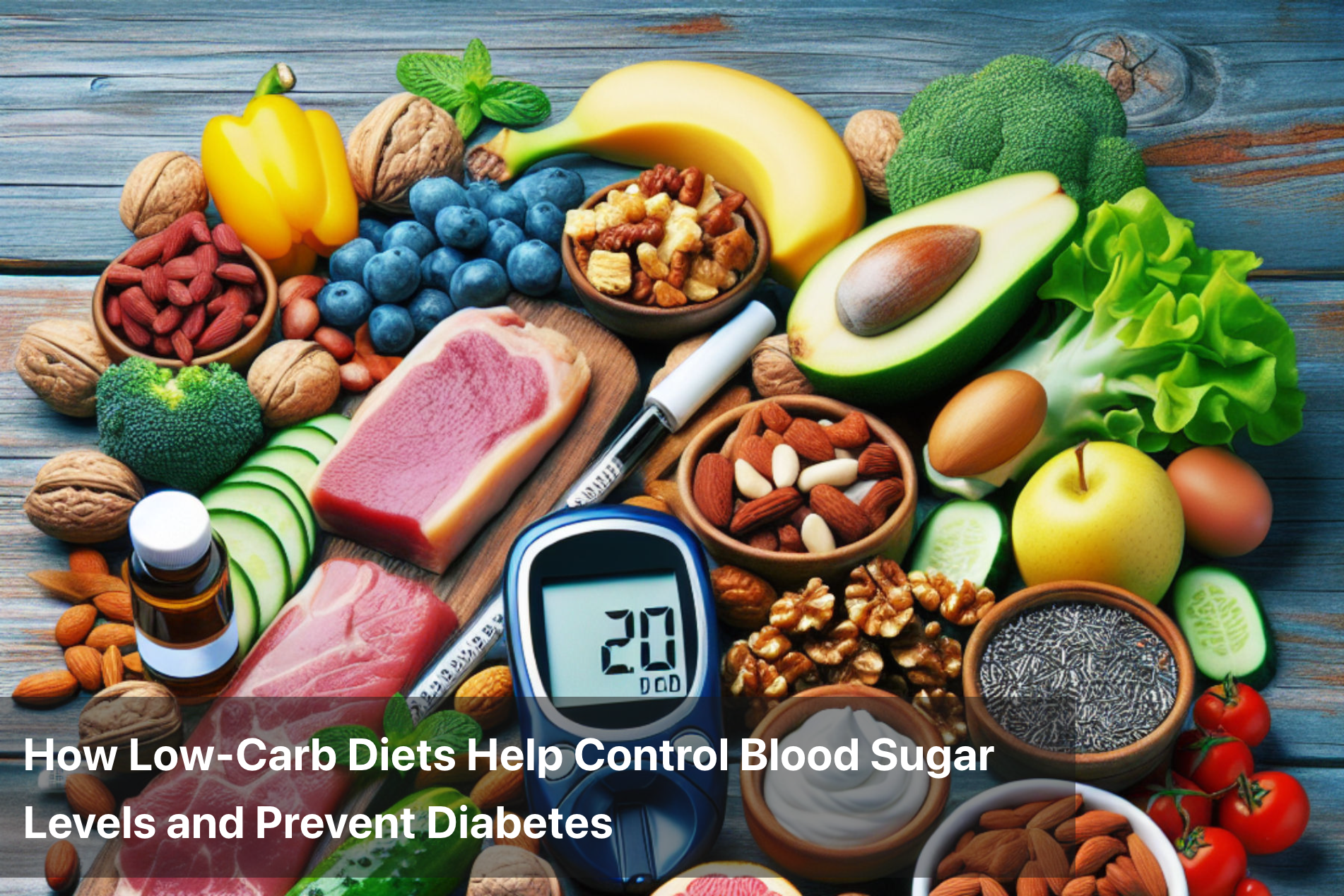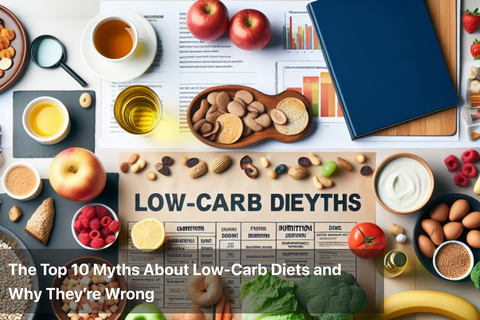
How Low-Carb Diets Help Control Blood Sugar Levels and Prevent Diabetes
Diabetes has become one of the most common chronic health conditions worldwide. In India alone, millions live with elevated blood sugar levels, often unaware until complications arise. A major contributor to this surge is the excessive intake of carbohydrates, especially from processed foods and sugary beverages. Making dietary changes is one of the most effective ways to manage blood sugar, and low-carb diets have emerged as a powerful tool for prevention and control.

Understanding Blood Sugar and Its Regulation
Blood sugar, or blood glucose, is the primary source of energy for the body's cells. It comes from the carbohydrates in the foods we eat. After consumption, carbohydrates are broken down into glucose and released into the bloodstream. The hormone insulin, produced by the pancreas, helps cells absorb this glucose for energy.
When the body either doesn’t produce enough insulin or can’t use it effectively, blood sugar levels remain elevated. This leads to a condition called insulin resistance, which can eventually result in type 2 diabetes.
Causes of High Blood Sugar and Diabetes
Understanding what causes blood sugar spikes is key to prevention. Some of the most common causes include:
High carbohydrate intake, especially from refined sugars and grains
Sedentary lifestyle, leading to poor insulin sensitivity
Obesity, particularly visceral fat around the abdomen
Genetics and family history
Hormonal imbalances (e.g., PCOS, thyroid disorders)
Chronic stress and poor sleep
Smoking and excessive alcohol consumption
Symptoms of High Blood Sugar
Consistently elevated blood glucose levels can lead to various symptoms, including:
Frequent urination
Increased thirst
Fatigue and irritability
Blurred vision
Unexplained weight loss
Slow wound healing
Tingling or numbness in hands and feet
Frequent infections, especially skin and urinary tract
These signs are often subtle at first, making it crucial to monitor sugar levels, especially for those at risk.
How a Low-Carb Diet Helps Regulate Blood Sugar
Low-carb diets limit carbohydrate intake and focus on proteins, healthy fats, and non-starchy vegetables. By reducing carbs, the body experiences fewer glucose spikes after meals, helping maintain stable insulin levels. This has a direct impact on blood sugar control and insulin sensitivity.
Key benefits of a low-carb diet for managing blood sugar:
Lower post-meal glucose spikes
Improved insulin sensitivity
Reduced fasting blood sugar levels
Better weight management
Lower triglycerides and improved cholesterol levels
Reduced dependence on medications (in some cases under medical supervision)
Types of Low-Carb Diets and Their Impact
Different low-carb approaches exist, and they vary in the amount of daily carbohydrate intake:
Type of Diet |
Carb Intake (per day) |
Typical Foods Included |
Impact on Blood Sugar |
|---|---|---|---|
Standard Low-Carb |
50–100g |
Vegetables, nuts, seeds, lean meats, dairy, some fruits |
Moderate improvement in insulin sensitivity |
Ketogenic Diet (Keto) |
20–50g |
High fat, moderate protein, very low carb (avocados, eggs, cheese) |
Significant blood sugar and insulin control |
Moderate-Carb (Balanced) |
100–150g |
Whole grains, legumes, fruits, vegetables |
Better than high-carb, but slower improvements |
Preventing Diabetes with a Low-Carb Lifestyle
Adopting a low-carb lifestyle even before blood sugar becomes a problem is a smart preventive strategy. For people with prediabetes, lowering carbohydrate intake can prevent or delay the onset of type 2 diabetes. Key reasons why a low-carb diet prevents diabetes include:
Reduced need for insulin production
Decreased fat storage in liver and pancreas
Lower levels of inflammation
Precautions When Starting a Low-Carb Diet
While low-carb eating is generally safe, certain precautions help ensure a smooth transition:
Consult a healthcare provider, especially if you are on medications like insulin or blood pressure tablets.
Stay hydrated to help flush excess ketones and avoid fatigue.
Increase salt intake slightly during the first few days to prevent dizziness or headaches (common in the early adjustment period).
Don’t skip vegetables — fiber is essential for digestion and long-term health.
Avoid extreme restriction unless supervised, especially in children, pregnant women, or those with medical conditions.

Who Can Benefit Most from a Low-Carb Diet?
A low-carb diet is particularly beneficial for:
People with type 2 diabetes or prediabetes
Those struggling with obesity or belly fat
Individuals with insulin resistance or PCOS
People with metabolic syndrome or fatty liver
Anyone looking to improve energy levels and reduce sugar cravings
Summary
A low-carb diet is a powerful and scientifically backed way to manage blood sugar levels and prevent the onset of type 2 diabetes. By reducing carbohydrate intake, the body maintains better insulin sensitivity, reduces glucose spikes, and improves metabolic health. Combined with an active lifestyle, stress management, and quality sleep, a low-carb approach can offer long-term benefits.
Lofoods supports this journey by providing low-carb alternatives that don’t compromise on taste or nutrition. Making the switch to low-carb living can be a life-changing decision — not only for blood sugar control but for overall well-being.
This Blog post is an initiative by Lo! Foods, to provide accurate and Nutritionist / Doctor approved information related to Health. Lo! Foods is India's leading brand for Everyday Functional Foods. Foods designed for specific Health conditions or Needs. Lo! Foods also runs India's largest range of Low Carb Healthy Cloud Kitchens, under the brand names of Lo!, ProteinChef, ATH (All Things Healthy) and DiabeSmart.













Leave a comment
Your email address will not be published.